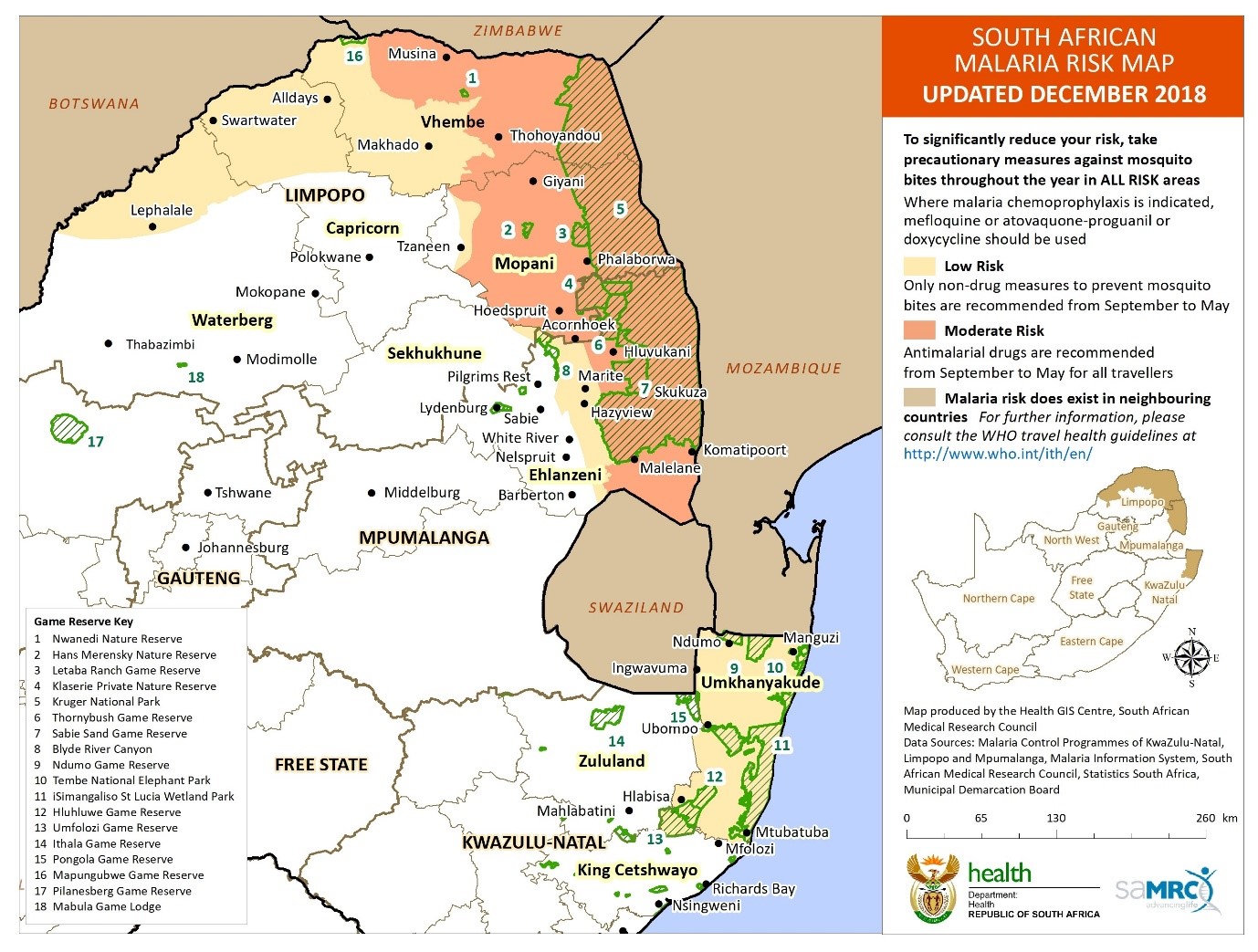As we approach the holiday season, many will be travelling to malaria-endemic areas within South Africa and to neighbouring malaria-endemic countries. The map (below) indicates the three malaria-endemic provinces (northeastern Limpopo, eastern Mpumalanga, and northern KwaZulu-Natal) in South Africa.

Malaria is preventable and treatable. An increase in the number of malaria cases occurs in summer months with occasional increases after Easter holidays. Travellers to malaria-endemic areas are advised to use anti-mosquito measures such as bednets, repellents and/or prophylactic medicines. Travellers can also consult their doctors, clinics or pharmacists for anti-malarial chemoprophylaxis. Current recommended chemoprophylactic medications include doxycycline or atovaquone-proguanil, which are available without prescription, but the healthcare worker needs to advise the best option for each individual. Mefloquine, the recommended malaria prophylactic medication for pregnant women and young children (<11 kg weight) is currently not available and therefore, they are encouraged to postpone travelling to endemic areas during this period.
Mosquitoes bite after sunset to sunrise the next day, therefore covering arms, legs, ankles and wrists is important to prevent mosquito bites. Early diagnosis and treatment reduces severity of the disease. Consequently, if you have travelled to a malaria endemic area in the past 10 days to six weeks and become ill with ’flu-like symptoms (headache, muscle and joint pains, chills, fever and sweating; vomiting and loss of appetite in young children), seek medical attention. This will include a malaria blood test, which should be repeated if necessary. Furthermore, inform the healthcare workers about your travel and possible exposure, even if they do not ask. Children who contract malaria may present with non-specific symptoms and disease progression is quicker. It is important for them to access medical care as soon as possible.
In light of Cyclone Idai, there may be an increase of malaria cases within the next two months locally and within the southeast African region. If anyone presents at a health facility with malaria symptoms and travel history to an endemic area affected by the floods and rain of Cyclone Idai, they will need prompt medical attention and care including a malaria blood test, and treatment if found positive for malaria.


